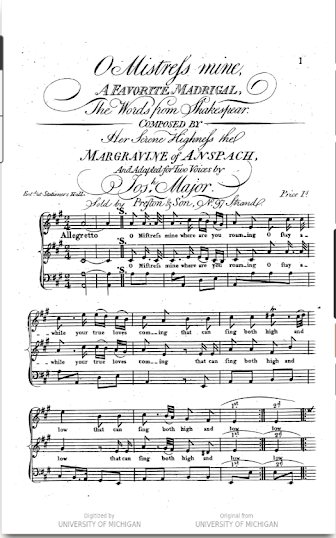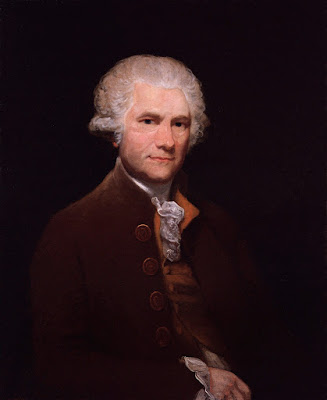A Shakespeare Song set to music by Elizabeth Craven

Elizabeth Craven loved music and poetry and occasionally liked to compose music for her favourite poems. This is her setting of Shakespeare's O Mistress Mine, Where Are You Roaming? The words come from Twelfth Night: O Mistress mine where are you roaming? O stay and hear, your true love's coming, That can sing both high and low. Trip no further pretty sweeting. Journeys end in lovers' meeting, Every wise man's son doth know. What is love, 'tis not hereafter, Present mirth, hath present laughter: What's to come, is still unsure. In delay there lies no plenty, Then come kiss me sweet and twenty: Youth's a stuff will not endure. The original song has been adapted for two voices by Mr Joseph Major, who was a Professor of Music resident in Bloomsbury. We know that as he subscribed in 1805 to a book called Dr. Watts's Psalms and Hymns, set to new music in three and four parts, edited by Edward Miller. Only about half a dozen copies of
